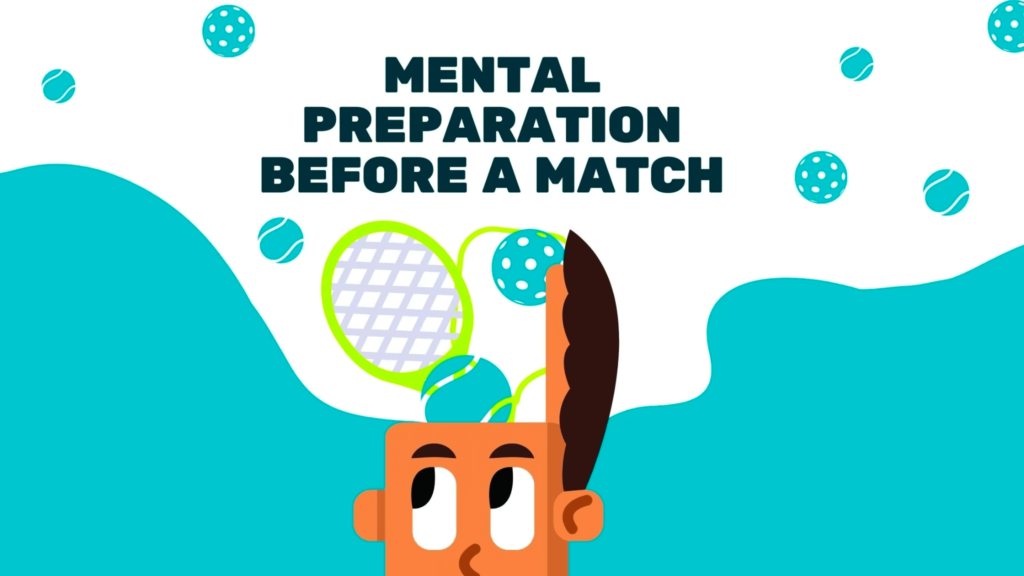Tennis psychology is about understanding how a player’s mind works together with their physical skills in the game. It’s really important in tennis, not just for hitting the ball but also for being mentally strong. This aspect of tennis is also crucial for those engaging in activities like predicting match outcomes on an online tennis betting website like 1xbet India, where understanding a player’s mental state can be as valuable as knowing their physical prowess.
Being mentally strong in tennis is super important. It helps players stay focused, deal with stress, and use their emotions in a good way, especially when the game gets tough. In the past, people didn’t pay much attention to this mental side of tennis. They focused more on physical and technical skills.
But as tennis became more competitive, the mental part started to get more attention. In the early 1900s, some people began to seriously look into how thinking and feeling can affect how well someone plays tennis. Over time, this became a big part of learning tennis, not just as an idea but as a real tool to help players get better at the game.
Understanding the Mental Demands of Tennis

Understanding how thinking plays a big part in tennis helps us see that the sport is more than just physical. Tennis is like a fast-paced thinking game where players need to be fit and skilled, but also really smart. They have to think quickly, guess what their opponent will do next, and change their plans during the game, all while dealing with the pressure of trying to win.
This thinking side of tennis makes it more than just a game of physical strength. It’s also about being mentally tough. Players need to stay focused for a long time, handle stress and nervousness, and deal with being alone on the court, as tennis is often a one-on-one challenge.
Being able to keep calm, especially during important moments or when things don’t go as planned, is just as important for winning in tennis as having a strong serve or a good backhand. The mix of thinking and physical skills makes tennis a special and exciting sport to play and watch.
Key Psychological Skills in Tennis
In tennis, being mentally strong is just as important as being physically fit. Players need to stay focused and make quick decisions during the game. Being able to concentrate, even when there’s a lot of noise or pressure, can really make a difference in winning or losing.
It’s also really important to be able to control your emotions and stay calm, especially during big moments in the match. Players who can keep their cool are often the ones who do well, because they don’t let stress or upset mess up their playing.
Being motivated and tough mentally is key, both in practice and during long matches. Players who can keep going, even when it’s hard, are often the ones who beat tough opponents or play well in difficult conditions. Finally, believing in yourself and feeling confident can really help.
Players who trust in their abilities and stick to their game plan are usually more successful and can handle tough situations better.
These mental skills are really important in tennis. Players who work on these skills often become strong competitors.
Mental Preparation for Matches

Getting ready mentally for tennis matches is really important and can often be what makes a player win or lose. This means using special mind tricks to get ready before the game. Players do things before a match like picturing themselves playing really well in their head. They imagine hitting the ball just right and feeling confident.
They also do calm-down exercises to get rid of nerves and help them focus. Setting goals is a big part of this too. It helps players think about what they want to do in the game, like hitting certain shots, instead of worrying about whether they’ll win or lose.
This kind of mental prep makes players go into the match feeling clear-headed and focused. It helps them deal with:
- the stress of the game better,
- stay focused,
- and play well, even when the pressure is on.
By getting really good at these mental tricks, players can play their best when it really counts in a match.
Pre-match Routines and visualization Techniques
Before a tennis match, players often have special routines and use imagination exercises to get ready mentally and stay focused. Each player has their own set of activities and rituals that help them get into the right frame of mind for the game.
Imagining the game in their mind is a big part of these routines. Players think about playing well, making great shots, and how to handle different situations in the match. This kind of mental practice helps them concentrate better, feel more confident, and get ready for tough moments during the game. By imagining themselves succeeding and thinking through their tactics, players can react faster and make better decisions when they are actually playing.
These methods also help players deal with nervousness. By mentally getting used to the pressure before the game starts, they can stay calm and think clearly during the match. This kind of mental strength, built from these pre-game routines and using imagination, often sets the best players apart in the challenging and mentally tough world of tennis.
Goal Setting and Strategic Planning

In tennis, making goals and having a plan is really important for players’ mental prep. This means they set clear and realistic goals like getting better at certain shots, being more fit, or reaching a certain ranking. These goals help players know what they are working towards.
Then, there’s making a plan, which is more than just setting goals. It’s about creating a detailed to-do list that covers things like when to train, what skills to work on, how to play in matches, and how to stay mentally strong.
This plan needs to be flexible. Players should be able to change it based on how they’re doing and advice from their coaches. By mixing goal setting with making a plan, tennis players make a guide for themselves. This guide helps them train their bodies and also strengthens their mind and focus, which are really important for winning in tennis.
Conclusion
As we conclude this exploration into the dynamic and intricate world of tennis psychology, it’s clear that the mental battle on the court is just as pivotal as the physical one. The strategies, insights, and techniques discussed in this blog underscore the importance of mental fortitude in tennis. From developing a robust pre-match routine to mastering the art of staying focused and calm under pressure, the mental aspect of tennis is a complex yet fascinating component of the game.
We’ve seen how goal setting and strategic planning can lay a solid foundation for success, and how emotional control can turn the tide of a match. The role of a sports psychologist has emerged as a key factor in helping players unlock their full potential. Moreover, the stories of tennis legends who excelled not just with their rackets but with their mental strength, serve as inspiring examples for players at all levels.
As players, coaches, or simply fans of the game, embracing the psychological elements of tennis enriches our understanding and appreciation of the sport. It’s a reminder that the challenges faced on the court are not just about physical prowess, but also about the resilience, strategic thinking, and emotional intelligence that define the champions of the game. Whether you’re stepping onto the court for a local tournament or watching the grand slams, remember: tennis is not just played between the lines of the court, but also within the vast and complex arena of the human mind.
Leave a Reply